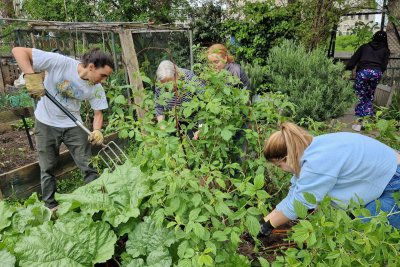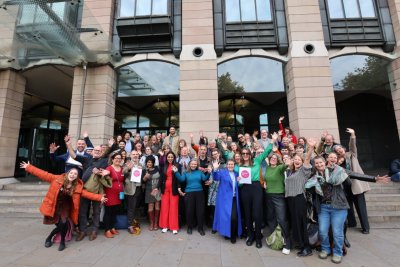 Credit: Cottonbro | Pexels
Credit: Cottonbro | Pexels

It's February, it's time to kick the fizz
Take action this February to reduce your sugar intake by kicking out fizzy drinks. Whether you’re taking part as an individual or are getting your school, workplace or local community on board, take the pledge this month to phase out the fizz.
It’s February which means it’s time for Fizz Free February again. Cutting out fizzy drinks is a really easy way to drastically reduce your sugar intake and an easy step to improve your health. By committing to going fizz free for the entire month of February, you can develop new habits that can take you through the rest of the year, and beyond.
Why ditch the fizz?
Fizzy drinks are the largest single source of sugar for children aged 11-18. They provide an average of 29% of daily sugar intake with most containing 6 or more teaspoons of sugar per can. To add to this, energy drink consumption is higher in the UK than other countries in Europe, especially for young people.
If everyone in England halves the maximum intake of sugar, in five year we could save the NHS £500m every year. Because sugar increases the risk of poor health, reducing sugar would reduce the risk of complicated and expensive health treatments and it is predicted that would prevent 4,000 early deaths and over 200,000 cases of tooth decay each year.
Soft drinks are not only bad for our health, they also have damaging impact on the planet; they carry a heavy carbon footprint, contribute to deforestation, waste a lot of water and pollute the environment. Read more here and use the climate social media cards below.
Fizz Free February was developed by the public health team in Southwark Council in 2018 and has since grown into a national month of action. Each year, we call on everyone in our Sugar Smart campaign networks to take part.
Download the Fizz Free February resources to get started:
- FFF Frequently asked questions
- FFF poster for teens and older audiences
- FFF poster for younger audience
- FFF calendar chart for schools
- FFF certificate
- Social media cards
- Guidance for communications campaigns (for councils and other organisations)
If you're leading a local Sugar Smart campaign or run healthy eating public engagement work within your local area:
- Get in touch with the Sugar Smart team and let us know that you're planning to promote Fizz Free February in your area
- Download the resources from the Sugar Smart dashboard, which you can edit to add your logo and local information
If you would like to get your workplace, group, school or other setting involved:
- Visit your Sugar Smart dashboard and choose which actions you are taking. Register if you're just starting.
- Share your story! What is your setting doing as part of Fizz Free Feb? We can feature what you're up to through our network.
If you're taking part yourself or with your family:
- Can your workplace, group or school get involved? Spread the word!
- Use the #gofizzfree hashtag on Twitter to share how you're getting on and be inspired by others ditching the fizz.
Sugar Smart UK: Want your local area to become Sugar Smart?
Sustain
The Green House
244-254 Cambridge Heath Road
London E2 9DA
020 3559 6777
sustain@sustainweb.org
Sustain advocates food and agriculture policies and practices that enhance the health and welfare of people and animals, improve the working and living environment, promote equity and enrich society and culture.
© Sustain 2026
Registered charity (no. 1018643)
Data privacy & cookies
Icons by Icons8







